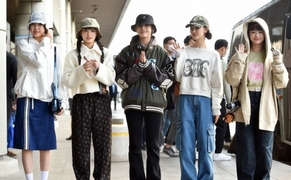 |
AsiaToday reporters Ji Hwan-hyuk & Park Ji-eun
Regarding the conflict between the government and the medical community over the medical school quota hike, the public has questioned why the quota hike should be negotiated. The people also expressed anger at the doctors’ collective actions.
Following the administrative branch, all the three powers of administration, legislation, and judicature answered that increased medical school quota is necessary. The Seoul High Court on May 16 rejected a request from trainee doctors, medical professors, and other opponents to block the government’s plan to increase the number of medical school students by 2,000 starting next year. The court considered the government’s plan to raise medical school admissions is essential, saying, “There is a concern that it will have a significant impact on public welfare.”
As the court supported the government’s plan, the first-ever quota increase in 27 years appears to be on track. The government stressed that the push is aimed at laying the groundwork for medical reform to provide people with a better medical environment and medical services, and promised that it will successfully complete medical reform at the will of the people and repay them with a better medical environment.
However, despite the court’s ruling and the government’s plan, the medical community is still resisting and holding people’s lives and health hostage. Lim Hyun-taek, chairman of the Korean Medical Association, made a ridiculous claim that the judge must have been appeased to the position of Supreme Court judge.
There are growing calls to eliminate the solid vested interests of doctors. All the functions of the state, including legislation, justice and administration, along with the majority of the people, concluded that the increase in medical school admissions is necessary for medical reform. Now is time for the medical community to answer the needs of the people.
The presidential office on Sunday proposed a meeting to the medical community without preconditions. At a briefing, Jang Sang-yoon, senior presidential secretary for social affairs, asked doctors and medical students to come back to their original positions and actively suggest their opinions even if there are unsatisfactory aspects. He also urged medical organizations to first propose a meeting for dialogue without any preconditions that cannot be realized, such as a one-year grace period.
#medical school quota hike
Copyright by Asiatoday
Most Read
-
1
-
2
-
3
-
4
-
5
-
6
-
7





















